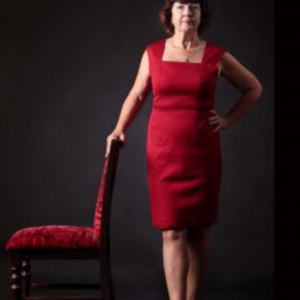November 10th, 2016 Newsletter

November 10th, 2016 Newsletter
November 10, 2016
Good morning and welcome to agebuzz… Headlining today’s topics:
-Thanks For Caring: Resources For Those Who Provide Care
-Can You Plan Ahead? The Risks Of Evening Or Weekend Cardiac Arrests
-Check-Up: How To Diagnose Dementia
-A Secure Future? Some Suggestions To Change Social Security
-Egg-cellent: Eating Eggs And Reducing Stroke Risk
-Symbols Of 60+: Women Reveal Their True Selves In Photos
-The Last Word
Thanks For Caring: Resources For Those Who Provide Care: Every month seems to bring recognition of some noteworthy cause or group. November is marked as National Caregivers Month. Anyone who is, or has been, a caregiver understands the many demands, few rewards and innumerable tasks involved in helping an impaired loved one on a day-to-day basis. Resources and helpful info is out there but it’s often hard to know where to start or what to trust. The National Institute on Aging is a good place to begin- its website provides useful lists, publications, fact sheets and links to other websites and support groups, some broken down by diagnosis, setting or task. So reach out for help, and Read Here.
Can You Plan Ahead? The Risks Of Evening Or Weekend Cardiac Arrests: Few medical emergencies are within your control: you never know when trauma or serious illness will strike. But if you could plan ahead, you’d be wise to avoid having a cardiac arrest in a hospital on an evening or weekend. A study by the UK National Cardiac Arrest Audit mirrors similar findings in the US: hospital survival data for those experiencing cardiac arrests on nights and weekends is much lower than for those who are stricken during the week. There may be multiple reasons for this survival data disparity: fewer clinical staff or medical experts are on hand during off hours, for example. Analysts suggest that such data underscores the need for higher nursing levels and, perhaps within the control of a patient and family: the need to always have a patient advocate or family member on hand for the hospital patient, to monitor and if need be call out for help when an emergency happens. So take note and Read Here.
Check-Up: How To Diagnose Dementia: Mental confusion and trouble with daily activities often trigger alarms: Is my loved one suffering from Alzheimer’s? It could be some kind of dementia or it could be some other treatable illness that’s causing mental cloudiness. The only way to know for sure is to have a physician check it out. Which leads us to Dr. Leslie Kernisan, the geriatrician whose wonderful website Better Health While Aging is a great source of trusted info and advice. To diagnose dementia, Dr. Kernisan takes a patient through a thorough exam process, in order to clarify the patient’s problems and the possible causes, not all of which signal dementia. It’s likely to take more than one visit, but a comprehensive exam is needed in order to determine what’s the cause and what are the best responses. So check in with Dr. Kernisan, and check out her advice Here.
A Secure Future? Some Suggestions To Change Social Security: There’s a lot of myth and misunderstanding out there regarding the long-term viability of Social Security. While it’s unlikely to go bust in our lifetime, there are serious policy questions about it’s long-term viability and changes that need to happen. But that’s a provocative topic few politicians are willing to touch. A new book, however, has not only broached the topic, it’s also proposed a somewhat radical re-imagining of Social Security, in order to secure the program and recognize the new reality of longer lives, less retirement and income inequality in our country. Written by Yale Law professor Anne L. Alstott, A New Deal For Old-Age asks essential moral and practical questions about how we should meet the needs of our aging and diverse society. To better understand Professor Alstott’s arguments and answers, Read Here.
Egg-cellent: Eating Eggs And Reducing Stroke Risk: Many of us thought eggs were in our past: used to be that high cholesterol meant that eggs should not be in your diet. But times and advice have changed. Not only have cholesterol dietary guidelines been revised, but there’s even more reason now to consider eating eggs: Turns out new data has found a connection between a daily egg and lower risk of stroke. In the Journal of the American College of Nutrition, researchers published data which demonstrates a 12% reduction of risk of stroke when an egg is included in your daily diet. Given that strokes are the 5th leading cause of death in the US, anything that can lessen their likelihood is a good thing. To learn more about the association, scramble one up and Read Here.
Symbols of 60+: Women Reveal Their True Selves In Photos: For many women, hitting age 60 is a real milestone: for some, it brings comfort in where they are in life, but for others, it’s an anxiety-provoking and humbling moment. For photographer Jenny O’Connor, turning 60 became the opportunity to seek out other women in her situation and to document, in words and photos, how these women felt about their place in the world. With clothing, props and facial expressions, the individuality, and uniqueness of the 60+ women who posed come shining through. And the project has drawn such interest that it continues on with a website, Facebook page and even live performances. With her camera, O’Connor has captured a fascinating glimpse into a group largely invisible in mainstream media. So meet the Visible Women at 60+ Here.
THE LAST WORD: “We do not inherit the world from our ancestors, we borrow it from our children.” Native American Proverb







